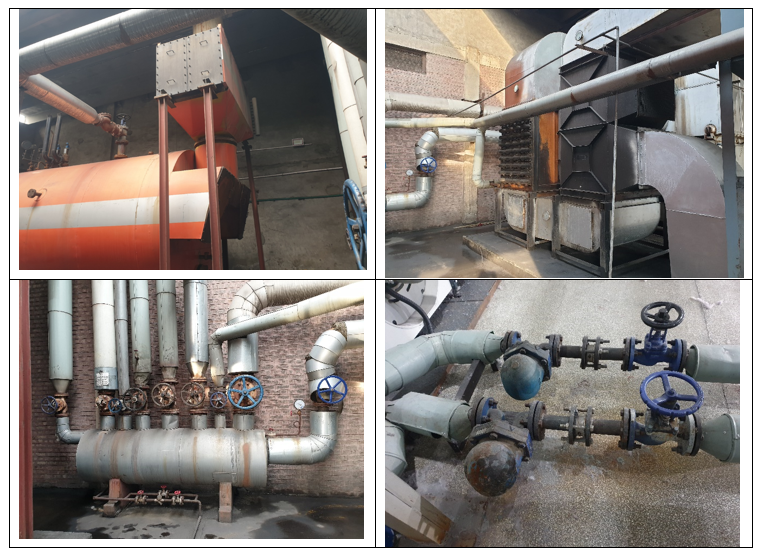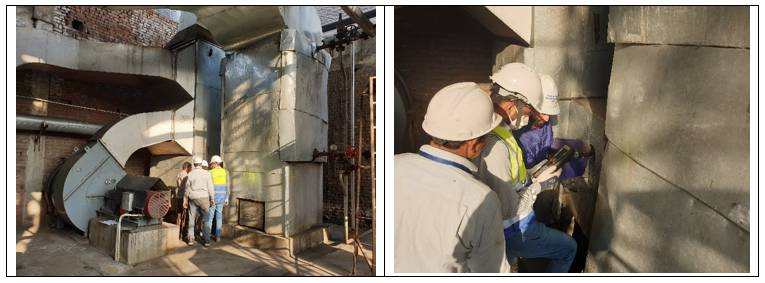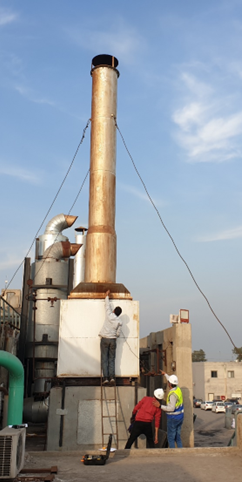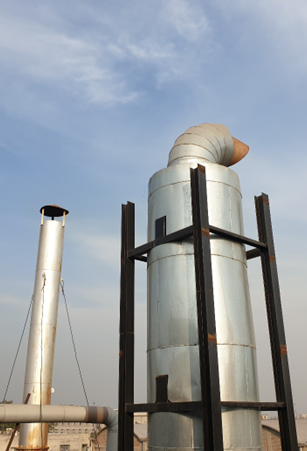Decarbonizing the Textile Manufacturing Sector in Pakistan
WWF-Pakistan is preparing a project to Decarbonize the Textile Manufacturing Sector in Pakistan. The project will support Pakistan’s shift towards low-carbon sustainable development by transforming its textile sector through adoption of energy efficiency (EE) and resource efficiency (RE) and recovery technologies to mitigate greenhouse gas (GHG) emissions. Under the project after extensive deliberation Energy Efficiency (EE) and Resource Efficiency (RE) options are analyzed and prioritized based on the mitigation potential, validated technology and implementation readiness. Following are the options;
1- Economizer / Air Preheater for Gas fired boilers
2- Condensate Recovery System with Flash Steam Recovery
3- Waste Heat Recovery Boiler for Gas Fired Engines
4- Heat Exchanger for Hot Wastewater

This project will provide access to finance (via the Financial Component) and advisory support (via the Technical Component) to the stakeholders in textile sectors. The FC component will establish a fund to provide loans to manufacturers for adopting EE and RE technologies on reduced interest rates. By establishing business cases for cleaner production technologies, the NSP will also catalyze the development of private sector financial instruments that textile SMEs can utilize to invest in RE and EE technologies beyond the project duration.
The Technical component aims to improve regulations, and address enforcement and compliance issues through capacity-building and policy interventions. In addition, capacities of relevant ministries and other national institutions of Pakistan, textile manufacturers, green technology service providers, and the banking sector will be built or strengthened. NEECA being the focal agency for energy efficiency and conservation in Pakistan supports the project to draft the minimum energy performance standards for energy efficiency and conservation technologies. NEECA will also collaborate with the project to produce enabling environment for energy services companies (ESCOs) which will catalyze the uptake of energy efficiency and conservation technologies in Pakistan.

Towards the end of the project, a transformational change will be triggered in Pakistan’s textile sector, with at least a 100 manufacturers adopting RE and EE technologies for GHG reduction, a revolving fund and private sector financial instruments set up for catalyzing and sustaining investments in RE and EE, a local green technologies market established to supply cost-effective, locally manufactured RE and EE solutions to the textile industry, and enhanced regulatory framework and policies that continue to support low-carbon development.

|
Objectives of NAMA Support Project (NSP): 1. An active revolving fund that incentives textile SMEs to invest in green technologies to ensure better compliance with international standards, reduce CO2 emissions and improve profitability 2. Provision of technical support, including development of business plans and securing financing for textile manufacturers to implement resource efficient and energy efficient technologies 3. Strengthening individual and institutional capacities of: a. Relevant ministries and other national institutions of Pakistan, particularly to strengthen the Monitoring, Reporting and Valuation system (MRV) to track CO2 emissions and validate energy performance standards b. Private institutions including textile manufacturers, green technology service providers, and local investors who intend to invest in green manufacturing technologies 4. Improving the regulatory framework for enhanced carbon-neutral development in the textile sector through maintaining climate change aspects into major policies, plans, strategies or the curriculum of various educational institutions 5. A market for green technologies is well established for energy service companies, consultants and suppliers that continues to support local demand
|
|
|
|
Potential Impact 1. Textile Sector: Will save nearly 22% on energy consumption, with corresponding reduction in costs of over USD 60 million, by adopting EE and RE technology 2. Public Sector: Government of Pakistan’s entities, through better environmental regulation, will contribute towards Nationally Determined Contributions (NDCs), which aim to reduce Pakistan’s 2030 projected GHG emissions by 20% 3. Private Sector: Financial institutions will profit from the untapped market for green technologies by expanding the financial instruments they offer to industries. 4. Households: Employees and communities in proximity of textile industries will benefit from improved air quality as a result of reduced CO2 emissions. More than 1 million direct and indirect beneficiaries. |
For more information Please Visit


